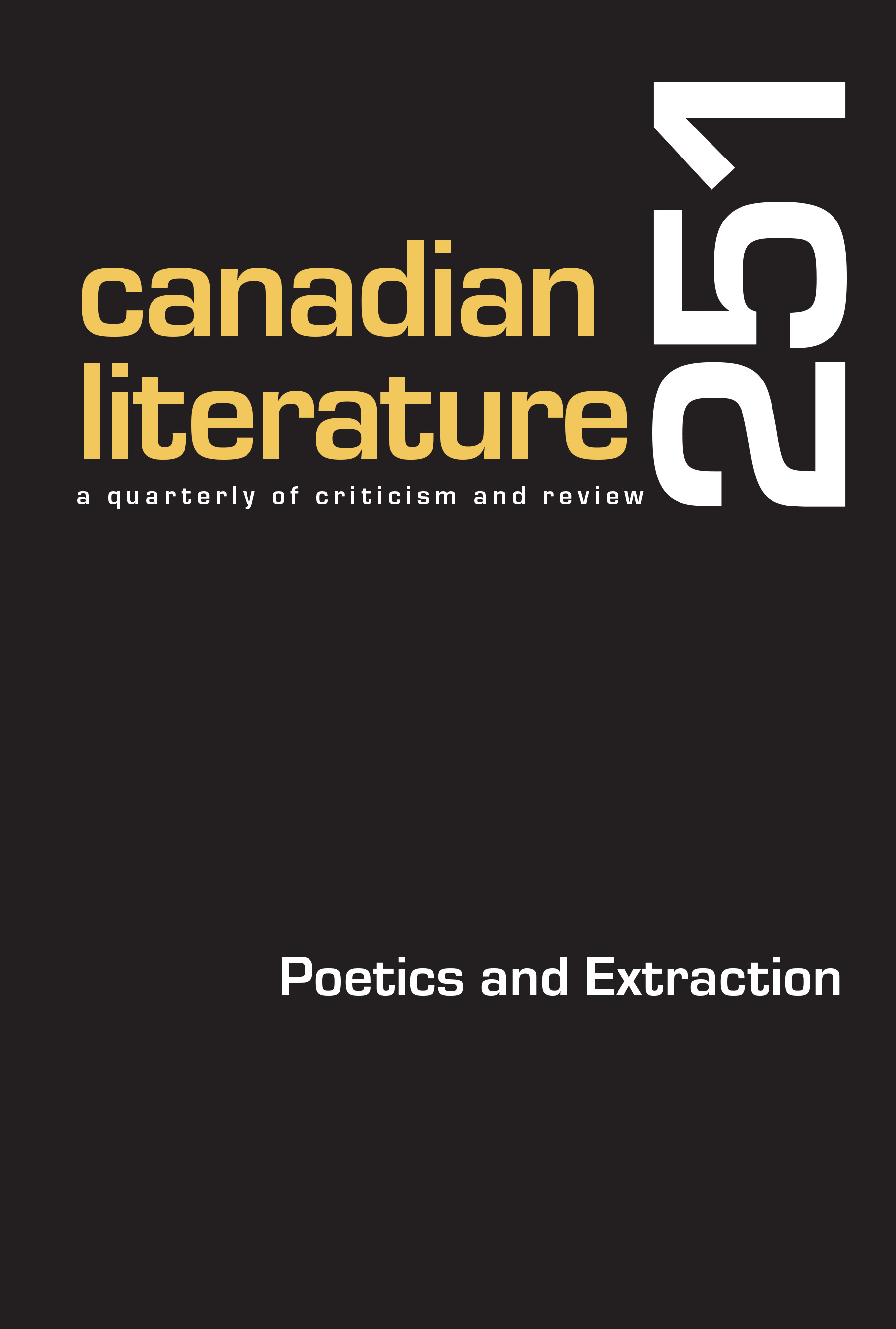“Stinking as Thinking” in Warren Cariou’s “Tarhands: A Messy Manifesto”
Abstract
Olfactory signatures mark memories and shape relationships to the world, including relationships to oil. Yet despite smell’s omnipresence and evocativeness – and despite the fact that writers use scent to represent oil encounters – few studies examine smell’s significance in oil writing. Following the scents in Cariou’s “Tarhands: A Messy Manifesto," this essay asks: What does the language of stench offer writers like Cariou who use aesthetic experimentation to interrogate the neo-colonial capitalist logic of resource extraction? How does Cariou reimagine the language of scent for his creative, ethical, and political goals? What does the language of smell offer readers, who have diverse and complex relationships to oil and environmental risk? I argue that Cariou's language of stink constitutes an irrepressible trace of the petrostate's rotten core, exposes how the body politic becomes habituated to (un)common scents/sense, and "makes manifest" the psychological structures of the "wastewest."


